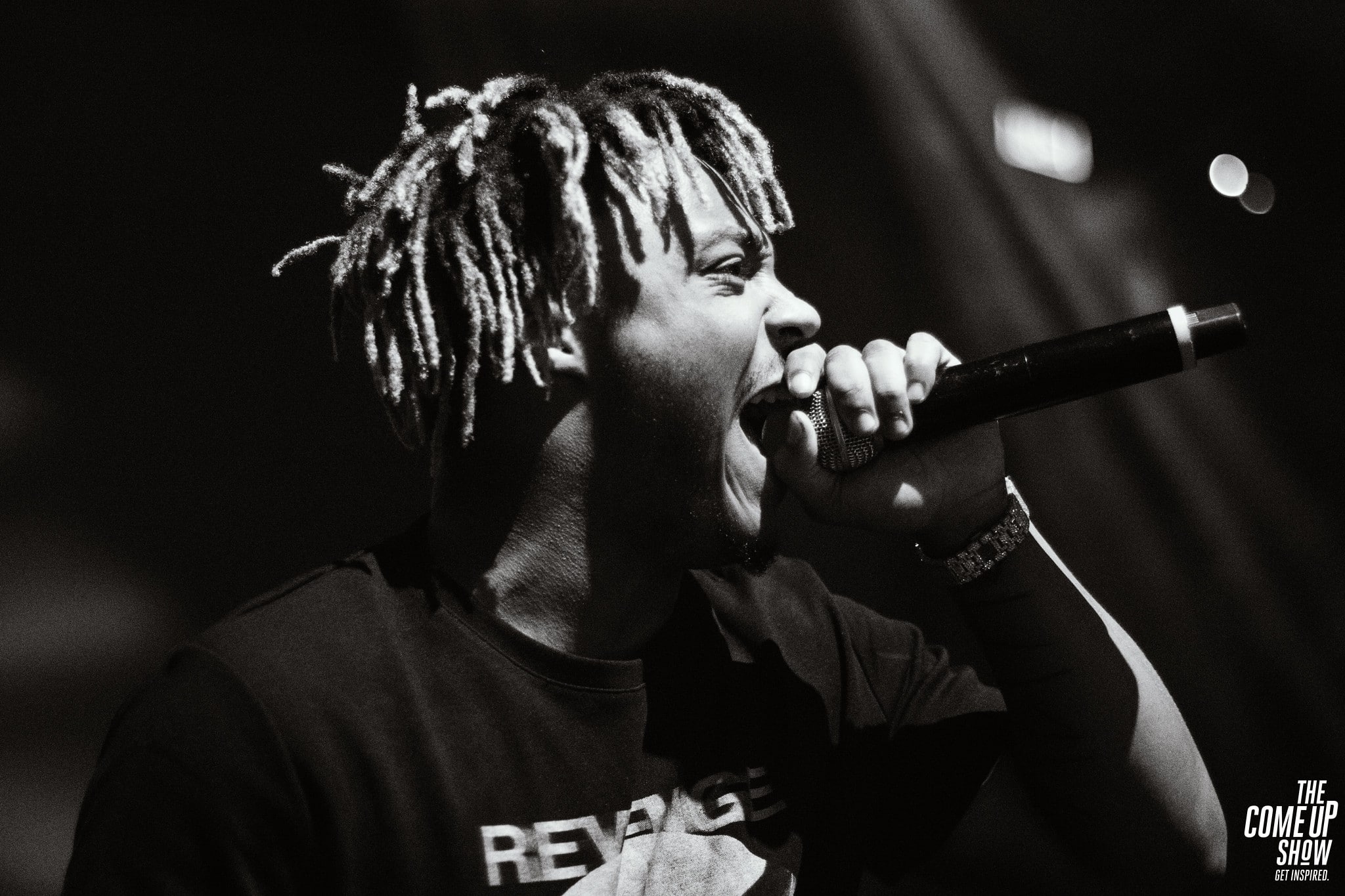Since the December 8, 2019 fatal overdose of Jarad Higgins—a Black rapper who went by the stage name Juice WRLD and who spoke openly about his struggle with drug use—the United States has been reckoning with the very issues associated with his death: an ever-worsening overdose crisis, and the emergency of Black Americans dying preventable premature deaths, like the police murders of George Floyd, Breonna Taylor and Tony McDade.
When I first heard the fan- and critic-favorite track “Wishing Well” from Higgins’ first posthumous album, Legends Never Die, released on July 10, I confused it for one of the numerous new songs reflecting on the present moment of Black political and social struggle, like the work of YG on “FTP” or Lil Baby on “The Bigger Picture.”
The track diaries Higgins’ struggle with depression, trauma and drug use as a means of survival. It opens with the words, “I can’t breathe”—the final plea for life by George Floyd and Eric Garner, another Black man murdered by police. By adopting a phrase that’s been a rallying cry for the Black Lives Matter movement as a descriptor of his complicated relationship with Percocet, Juice WRLD’s lyrics, for me, highlight the imperative to include Black drug users in the fight to defend Black lives.
Black people often face disproportionate health harms from drug use compared to other racial demographics. As fentanyl increasingly adulterated the illicit opioid supply between 2011 and 2016, Black people saw the largest leap in synthetic-opioid overdose fatality rate, according to the Center for Disease Control and Prevention. The disparate health impact is in part made possible, as a May 2020 issue brief by the federal government explains, by racist stereotypes and stigma, criminalization, inadequate healthcare, and “seperate and unequal” treatment options.
Fatal overdoses, unlike police murders, are not homicides (despite what prosecutors and politicians might say). But neither are causes of death to be accepted as natural. Rather, they are made possible by state policy—think, prohibition and militarized policing—and are preventable through systemic remedies, like universal naloxone access and education, and law-enforcement abolition.
Incidental responses to overdose and police violence are necessary, but not enough on their own. The eight-plus minute suffocation of George Floyd by Minneapolis officer Derek Chauvin didn’t have to happen: He “literally could have just lifted his knee,” as incoming Drug Police Alliance Executive Director Kassandra Frederique said in a recent Filter interview. The same goes for opioid-involved overdoses, she pointed out: “We pump the chest and then we breathe into each other.” But crucially, “We can’t keep doing CPR forever. We can’t keep reviving people to have to revive them again.”
So why aren’t we saying Jarad Higgins’ name, like we say George Floyd’s? Why aren’t we saying the name of Chynna Rogers, a rising 25-year-old rapper and model from Philadelphia who fatally overdosed in April 2020, like we say Breonna Taylor’s? Maybe it’s because people in the United States have accepted the state-sanctioned narrative: that people who use drugs are to blame for the harms that they experience.
Juice WRLD himself points out the double bind of simply being a Black man who lives with trauma and uses drugs in America. “If it wasn’t for the pills, I wouldn’t be here / But if I keep taking these pills, I won’t be here.”
His pre-mortem prophecy came to pass. It’s a tragedy and a political injustice, a death that likely could’ve been prevented if this country’s policy of terrorizing Black people who use drugs had been abolished. (The Movement for Black Lives has now even proposed a bill, The Breathe Act, that could deliver on that vision.)
Listening to Juice WRLD in a moment of radical possibility—where the political mainstream is actually contending with police abolition and activists are calling for a world kept safe by investments in care, not the terrorization of Black communities—makes me want a world where Higgins didn’t need to take pills to have been here, but could take pills and still be here.
Photograph of Juice WRLD by Mac Downey via Flickr/Creative Commons




